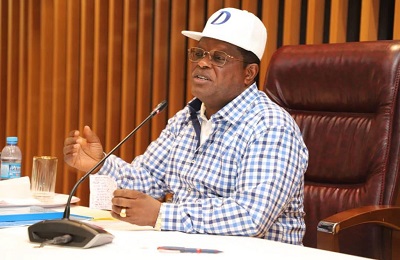Akwa Ibom State – Twenty-four of the 26 members in the Akwa Ibom State House of Assembly have defected from the Peoples Democratic Party (PDP) to the All Progressives Congress (APC). This significant Akwa Ibom Assembly mass defection alters the state’s legislative power balance.
Political Shift Rooted in PDP Internal Divisions
This shift stems from divisions within the PDP’s national leadership and its National Executive Council. Lawmakers stated these internal party crises undermined their capacity to serve constituents effectively. This division disrupted policy direction and weakened party cohesion. The lawmakers stated their departure results from these internal party struggles, not personal convenience.
Speaker Confirms Defection, Cites Constitutional Grounds
Speaker Udeme Otong formally announced the defection during Tuesday’s plenary. He referenced Section 109(1)(g) of Nigeria’s 1999 Constitution. This section allows lawmakers to change party affiliation if a clear division exists within their party’s national structure. Otong relayed the lawmakers’ collective reasoning: “You have each indicated that your defection is not out of political convenience or self-interest, but arises from a demonstrable division within the national leadership of the PDP a division which, by your account, has affected party cohesion, disrupted policy direction and hindered your ability to function as effective lawmakers.” Two members, Sunday Johnny of Onna State Constituency and Uduakobong Ekpo-Ufot of Etinan State Constituency, remained with the PDP.
Upholding Legislative Integrity Amidst Political Realignment
Speaker Otong addressed the Assembly, urging members to set aside political differences. He emphasised the House’s role as a symbol of democracy and stressed collective responsibility to the people of Akwa Ibom. “Let me state here that this House remains a symbol of democracy, and it is our collective responsibility to uphold the integrity of the legislative institution. Regardless of party lines, we must remain focused on our duty to make laws and decisions that advance the interest of Akwa Ibom people,” Otong stated. Legislative continuity supports effective policy implementation in critical areas like climate regulation.
APC Secures Dominant Majority, PDP Faces Challenge
The Akwa Ibom Assembly mass defection results in the All Progressives Congress (APC) securing a dominant majority in the state’s legislative body. With 24 members now aligned with the APC, the party will significantly influence the legislative agenda. The Peoples Democratic Party (PDP) faces a substantial challenge in recovering its legislative strength and influence. This realignment could impact the executive branch’s ability to pass legislation and foreshadow shifts in future electoral contests.
Broader Implications for Governance and Policy
This realignment significantly impacts Akwa Ibom State’s governance and policy-making. A strong legislative majority typically facilitates the passage of government bills and development projects. It also creates an expectation for the majority party to govern inclusively and accountably. Citizens will anticipate improved service delivery and enhanced oversight. Political stability from clear legislative control fosters investor confidence and supports long-term economic planning. Future developments will monitor the APC-dominated Assembly’s legislative output and its engagement with state issues.
By Abiodun Labi,Senior Correspondent








